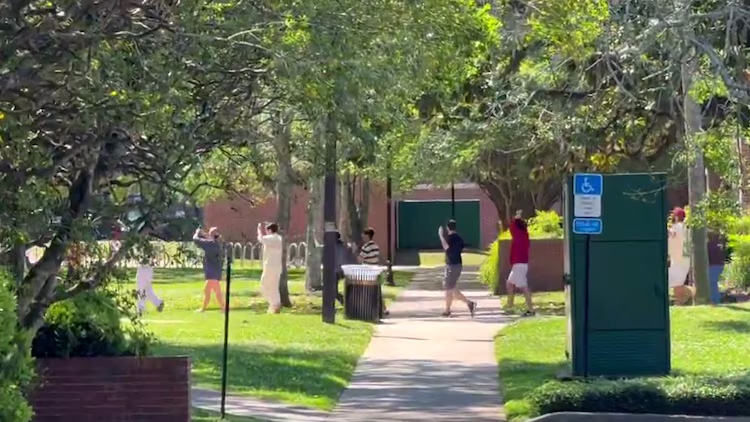Evaheart gives hope to patients with damaged hearts

FRESNO, Calif. (KFSN) -- Evaheart gives hope to patients with damaged hearts
When someone's heart is severely damaged, doctors may be able to implant a mechanical pump -- sometimes as a permanent assist to the heart, or as a temporary measure until transplant. Now, for the first time in the United States, experts are testing a new device designed to eliminate one of the bigger risks.
George "Mac" McAllister is a novice beekeeper and loves keeping up his small family farm.
Mac told ABC30, "It almost all came to a screeching halt. It was just a struggle to do things; even the simplest things."
Five years ago, Mac suffered two massive heart attacks and doctors told him he had congestive heart failure. He would need a transplant to survive.
In December, Mac became the first person in the United States to use a new ventricular assistant device or "VAD" called the Evaheart.
Salpy Pamboukian, MD, Director of the Mechanical Circulatory Support Device Program at the University of Alabama at Birmingham told ABC30, "It is a continuous- flow VAD which means that blood constantly enters the pump and is continuously pushed out into the circulation."
The Evaheart releases a special fluid that flushes the pump and keeps the blood from clotting, protecting patients from one potential "VAD" side effect.
"The thing that we get worried about is these blood clots breaking off and going to the brain and causing a stroke," Dr. Pamboukian said.
Mac explained, "That's a scary word."
The Evaheart is larger than other pumps and despite being tethered to wires and a battery Mac feels better than he has in years.
Mac's wife, Pat McAllister, told ABC30, "He's more like him. I like it!"
"Our outlook for the future is very bright now," Mac said.
It's a bridge to help Mac's ailing heart, while he waits for a new one.
Although Mac McAllister is the first person in the U.S. to receive the Evaheart, more than 130 Japanese patients have been implanted with the device. On the average, these patients have used the Evaheart for almost two years while waiting for a heart transplant. The company believes the U.S. study will help demonstrate the best candidates for the Evaheart will be those who are larger, and have a past history of GI bleeding.
For more information on this report, please contact:
Bob Shepard
205-934-8934
bshep@uab.edu











